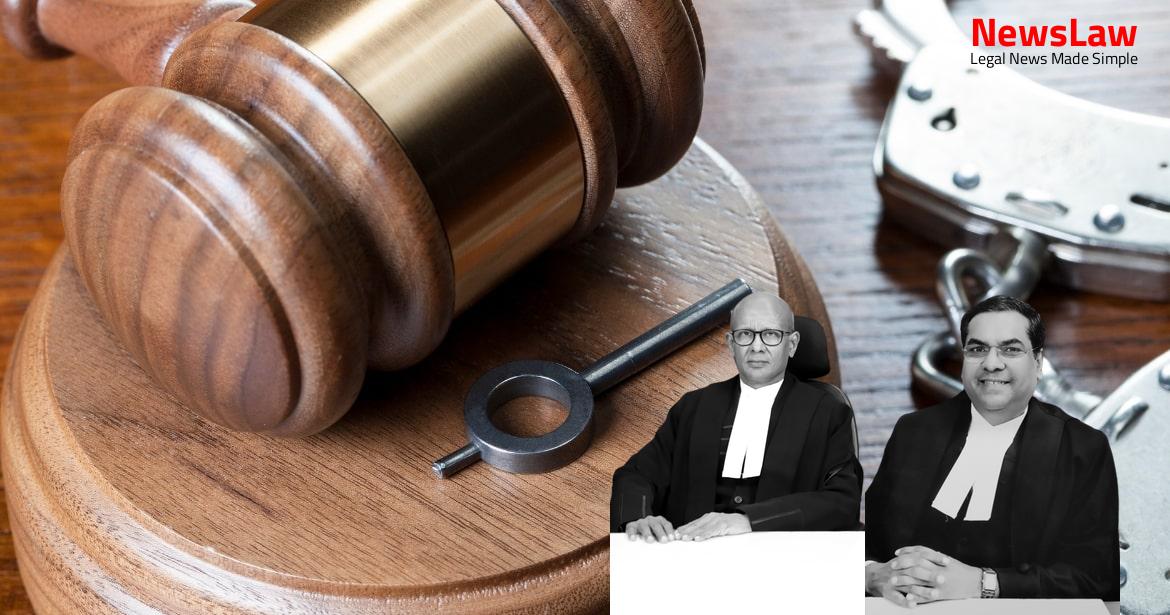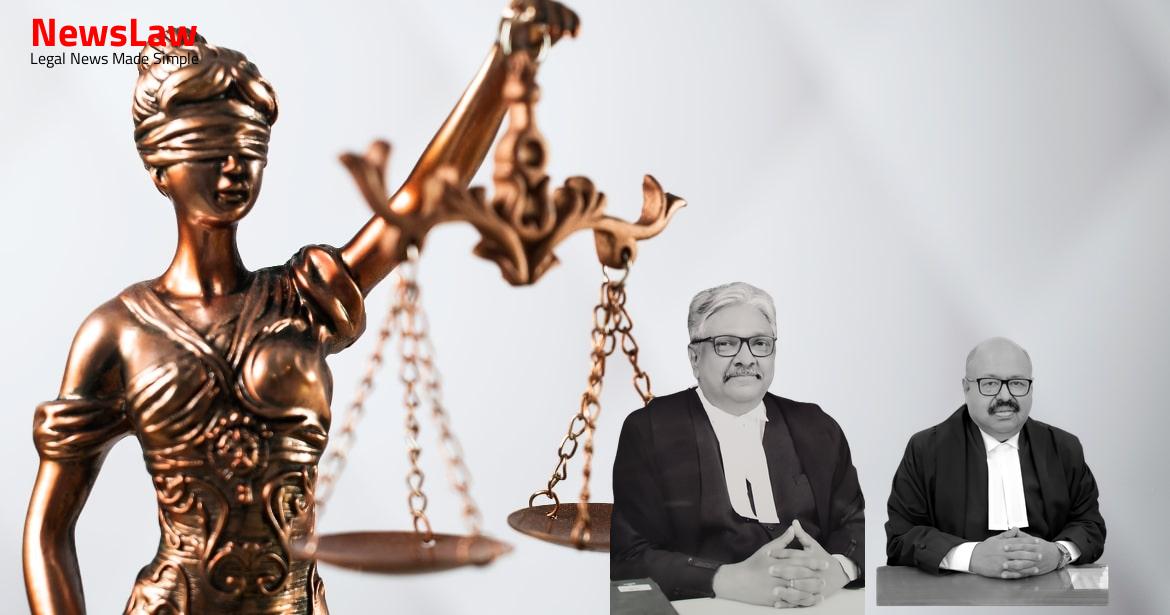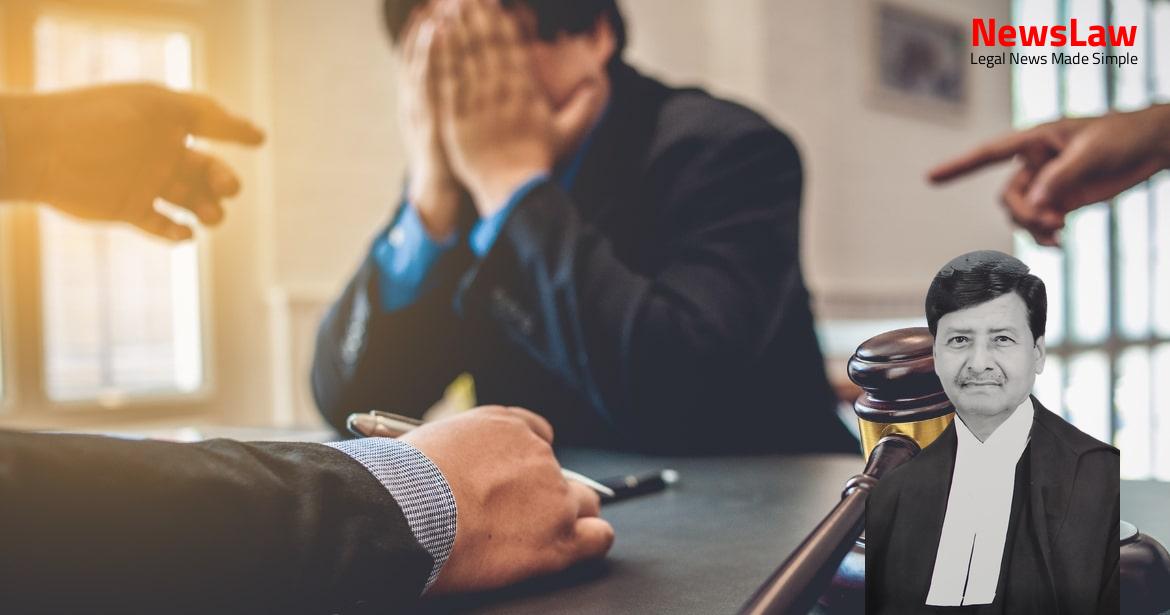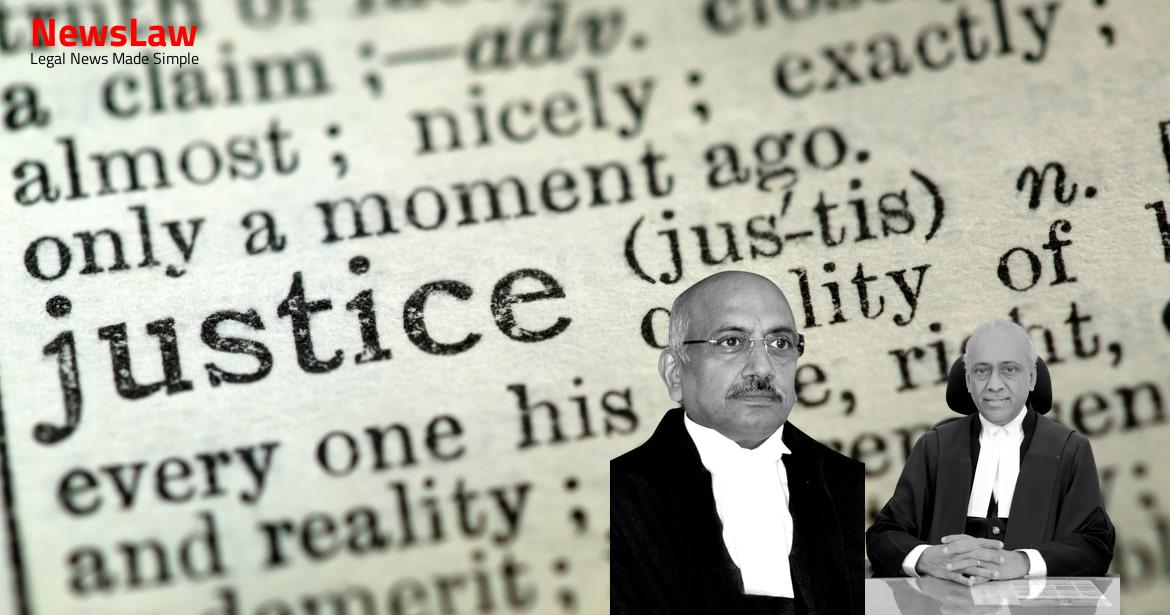Explore the intricacies of a significant legal case revolving around a disputed share acquisition involving Dr. Suresh Anne. The case touches upon fraud allegations and jurisdictional complexities under the Companies Act. The Supreme Court’s recent judgment sheds light on the nuances of company law and regulatory oversight. Stay tuned for details on this compelling legal saga.
Facts
- Suresh Anne became a Director of the company on 30.09.2004.
- Board Meeting held on 24.01.2015 found no buyer willing to purchase the shares of respondent No 2.
- An interim order was granted restraining the company from disposing of assets pending disposal of the main petition.
- Final order dated 21.08.2021 dismissed the Company Petition.
- The final order was passed by the Acting President of the NCLT.
- Respondent No 2, a doctor by profession, contested several claims.
- Issue of limitation raised due to the delay in filing the company petition after share acquisition.
- Allegations of fraud were raised by the company which NCLT stated to be under civil court jurisdiction.
- The NCLAT observed that the money was not transferred by the Appellants to the Respondents.
- It was noted that Mr. Lingamaneni Ramesh gave Rs. 14,67,41,557/- and received Rs. 9 Crores from the Respondents, indicating a questionable transaction.
- The transaction did not clearly establish payment for the acquisition of shares.
- Consequently, the allotment of shares to the Appellants was also not proven.
- The case was dismissed by NCLAT with a cost of 5,00,000/- imposed on the Appellants.
- The NCLAT deemed the appellants’ case as fraudulent and lacking in merit both factually and legally.
Also Read: Landmark Judgment by Supreme Court on Toll Collection Dispute
Issue
- The issue raised in the case was why the appellants did not come on the Board of Directors after acquiring the shares.
- The appellants were required to answer this question as part of the legal proceedings.
- This question was significant in determining the actions and intentions of the appellants after acquiring the shares.
Analysis
- The NCLT Acting President failed to consider the material on record and summarily dismissed the petition without further evidence.
- The NCLT failed to verify crucial documents and share certificates, dismissing them abruptly.
- The NCLAT dismissed the appeal without merit, not considering the material already on record.
- The NCLT Acting President and NCLAT did not examine the issues seriously to reach a cogent conclusion.
- The NCLAT incorrectly found that money was not transferred by the appellants, which was factually incorrect.
- The appellants had produced original share certificates which were overlooked by the NCLAT.
- The NCLT Acting President did not fulfill the mandate of law by failing to carry out necessary verifications.
- NCLT failed to conduct further inquiry as deemed necessary based on the interim order passed by the Member (Judicial).
- No evidence was led or considered on crucial issues, disregarding the importance of original documents and material placed on record.
- The reasons provided by the appellants for not taking certain steps were not fully considered by the NCLT, leading to inadequate conclusions.
- The jurisdiction under Section 155 of the Companies Act, 1956 (Section 111 thereafter) is somewhat summary in nature.
- If a seriously disputed question of title arises, the Company Court should relegate the parties to a civil suit for investigation and adjudication.
- National Company Law Tribunal can exercise power under Section 59 of the Companies Act, 2013 in cases of open-and-shut fraud.
- SEBI’s regulatory role must not be circumvented by applying for rectification under Section 111-A of the Act of 1956.
- Transactions falling under the regulatory body must be subject to scrutiny and regulation by the respective regulatory bodies.
- The effect of Section 430 of the Act of 2013 bars the civil court’s jurisdiction in matters under the National Company Law Tribunal.
- Remedy of a civil suit would be completely barred in disputes under the Companies Act, 2013.
- Complex questions of title fall outside the summary jurisdiction of the Company Law Board.
- SEBI holds regulatory jurisdiction and ex-ante powers in matters of violations under its regulations.
- Judicial bodies may direct parties to civil courts for matters not falling under their exclusive jurisdiction.
- Rule 70(5) of the National Company Law Tribunal Rules, 2016 is in pari materia with Section 111(7) of the Companies Act, 1956.
- The Company Court’s jurisdiction under Section 155 is exclusive and not summary for all matters raised in rectification.
- Purpose of regulations should not be bypassed by making applications to the Company Court parallel to SEBI’s jurisdiction.
- The Company Court discretionarily examines claims within the realm of rectification and its jurisdiction.
- Contentions and issues beyond rectification do not fall within the Company Court’s jurisdiction.
- The NCLAT accepted the story presented by the respondent without considering the fact that the appellants had paid a significant amount to the respondent.
- Both the NCLT and NCLAT did not address the 32 issues for consideration by examining the existing documentary evidence or calling for more evidence.
- The NCLAT overlooked the submission of original share certificates by the appellants and their argument based on Section 46 of the Companies Act, 2013.
Also Read: Judgment in the Case of Sundew Properties Ltd. v. TSERC & APTEL
Decision
- Company Petition No 667/59 & 241/HDB/2018 is restored to the file of the National Company Law Tribunal, Amaravati Bench, for consideration afresh on merits and in accordance with law.
- Given the passage of time since the institution of the petition, the National Company Law Tribunal is requested to give priority to the case and dispose of it expeditiously.
- The appeals are allowed, setting aside the judgments in Company Petition No 667/59 & 241/HDB/2018 and Company Appeal (AT) (CH) No 44 of 2021 & I.A. No 548 of 2021.
- Each party will bear their own costs, and any pending Interlocutory Applications (I.A.s) are disposed of.
Case Title: CHALASANI UDAYA SHANKAR Vs. M/S LEXUS TECHNOLOGIES PVT. LTD (2024 INSC 671)
Case Number: C.A. No.-005735-005736 – 2023



